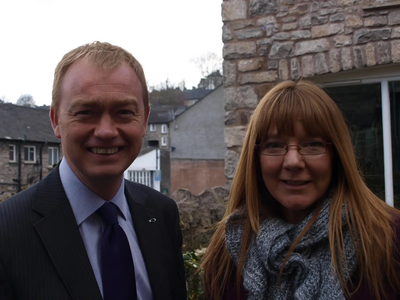Tim and Clare meet minister to discuss school transport costs

Minister for Schools David Laws MP met with South Lakes MP Tim Farron and Councillor Clare Feeney-Johnson discuss the issue of rural bus subsidies for students in Westminster this week
Recent changes means that young people have to stay in some form of education or training until they turn 18. However, travel to school for 16+ young people is not a statutory duty for Councils to fund, leaving many families having to pay up to £360 towards their Childs transport.
Tim and Clare met David Laws in the Department of Education in London and pressed the case that the government's changes to increase the age of participation in education must be backed up by support, especially for rural areas, in helping young people to attend school or college.
After the meeting Tim said: "I hope that this meeting will start a process that will ultimately lead to the Government stepping up to the plate and agreeing to support school transport. I will press Conservative colleagues in the coalition to try and get some movement.
"Expecting families to pay to allow their son or daughter to access an education to 18 is unacceptable. I have long opposed these rising charges and I still do, I am working to find funding to scrap them and allow every young person to travel to school or college without adding additional financial burdens on their families."
Councillor Clare Feeney-Johnson added: "I'd like thank Tim for enabling this discussion process to start which has highlighted the problems facing families with young people across Cumbria. We are committed to working with schools and transport providers and look forward to meeting with the minister again in the near future."
In concluding the meeting the Minister encouraged Tim and Clare to start thinking about how the need in Cumbria can be targeted and how they could argue that Cumbria had a greater need for further funding, for example focussing on the specifics such as the poor transport services.
